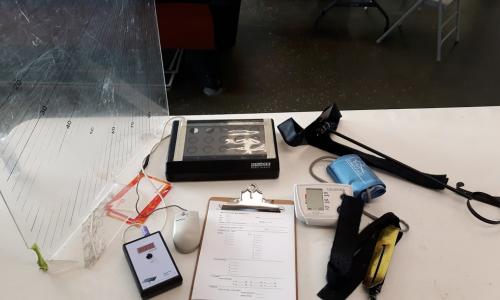
As the summer semester came to an end, I was wrapping up my first co-op term at Arthritis Research Canada (ARC). I had enjoyed a very successful few months as a Research Assistant, and it was with mixed emotions that I had to return to school in September. However, the study that I had been hired for had been extended, meaning another assistant was needed to take over. Fortunately for me, this also meant that my supervisor was able to offer me a co-op job the following summer. As a result, for the eight months in between, another assistant would join the team and take over my roles and responsibilities. Since I was well versed in my role in the study, my supervisor trusted me to train and guide the new member of our team before school began.
Having the opportunity to be on both sides of a job (trainer and trainee) is quite an insightful experience. First and foremost, my perspectives of the job itself changed dramatically. When you begin a new, unfamiliar job, it can be overwhelming. Your supervisor will assign you tasks that are quite straightforward to them at their level of experience. However, as you go to do the task, you may realize either you forgot half of what they just told you, or you have no idea what they are even asking you to do. That was my feeling for the majority of my first week or so on the job. I was in unchartered territory in a sink or swim situation. Conversely, as I got comfortable in my environment and familiar with the tasks I was assigned to do, I began to see why my supervisor found them so simple and straightforward.
Now imagine you are in your supervisor’s position. You have been on the job for months, maybe even years, and no task escapes your comfort zone. However, the workload is such that you need some relief. When the time comes to train your assistant, how do you cope with their inevitable struggles of beginning a new job? That was the experience I had during the last couple weeks of my summer work term while training my replacement. Suddenly, all the difficulties I had at the beginning of my work term began to make sense, such as the unfamiliarity of new tasks and the pressure to meet deadlines. I was able to view my own past struggles from a new lens, and understand how my work had impacted my supervisor early on in my work term. What’s more, my appreciation for my supervisor increased considerably: their patience and guidance with me as I learned the ropes of the job added to the respect I already had for them. This played a large role in helping me train my replacement, as I could better understand how to assist my trainee with their struggles by becoming more patient and guiding them better.
As a Research Assistant, one of the main tasks I was responsible for is data entry. Having performed this task almost every workday for the past three-and-a-half months, it was a very simple and doable task for me, one that rarely included any mistakes. Now that I was responsible for training someone new with the software, I maintained my mentality that it was a simple task. This proved to be a bad approach, as I undersold the task to my trainee, unintentionally implying that it was something that could be done passively. Unfortunately, mistakes were made in the subsequent entry of data.
Upon reflection, I was able to understand the difference in perspectives that our new assistant had of data entry and my having done the task for a few months prior. While it was nearly second nature for me, it was still a task that required a high level of attentiveness from my trainee. From then on, I had a different approach to training, one that was patient, understanding, and one that ensured the most important details were conveyed as such. This proved a much more successful method of training for accurate data entry. Förster et al. (2003) demonstrate that when a trainee is given a task to complete with a clear focus on error prevention, the accuracy of performance greatly increases. For instance, the hard copies of the files we dealt with were all confidential, and I had to stress that a high level of organization was critical. Throughout the new assistant’s eight months at ARC, there were no issues with lost or damaged files.
Throughout my experience training my replacement, I was able to grow a lot, not only professionally, but personally as well. What I believe is most inspiring about being able to understand a situation from both perspectives (that of a trainer and a trainee) is how applicable this is to life as a whole. Empathy goes a long way in building relationships, professional or not, and it is a virtue that is critical to a healthy society. The experiences I had during my co-op with ARC, while on a small scale, helped me understand something crucial about life: perspective is everything.
Works Cited
Förster, J., Higgins, E., & Bianco, A. T. (2003). Speed/accuracy decisions in task performance: Built-in trade-off or separate strategic concerns? Organizational Behavior and Human Decision Processes, 90(1), 148-164. doi:10.1016/s0749-5978(02)00509-5














